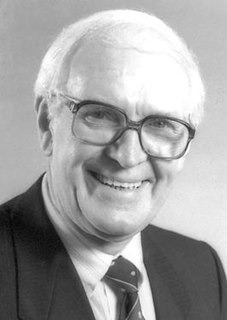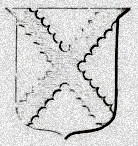
A rector is a senior official in an educational institution, and can refer to an official in either a university or a secondary school. Outside the English-speaking world the rector is often the most senior official in a university, whilst in the United States the most senior official is often referred to as president and in the United Kingdom and Commonwealth of Nations the most senior official is the chancellor, whose office is primarily ceremonial and titular. The term and office of a rector can be referred to as a rectorate. The title is used widely in universities in Europe and is very common in Latin American countries. It is also used in Brunei, Turkey, Russia, Pakistan, the Philippines, Indonesia, Israel and the Middle East. In the ancient universities of Scotland the office is sometimes referred to as Lord Rector, is the third most senior official, and is usually responsible for chairing the University Court.

The University of St Andrews is a public university in St Andrews, Fife, Scotland. It is the oldest of the four ancient universities of Scotland and, following Oxford and Cambridge universities, the third-oldest university in the English-speaking world. St Andrews was founded in 1413 when the Avignon Antipope Benedict XIII issued a papal bull to a small founding group of Augustinian clergy. Along with the universities of Glasgow, Edinburgh, and Aberdeen, St Andrews was part of the Scottish Enlightenment during the 18th century.

Sir James Whyte Black was a Scottish physician and pharmacologist. Black established a Veterinary Physiology department at the University of Glasgow, where he became interested in the effects of adrenaline on the human heart. He went to work for ICI Pharmaceuticals in 1958 and, while there, developed propranolol, a beta blocker used for the treatment of heart disease. Black was also responsible for the development of cimetidine, an H2 receptor antagonist, a drug used to treat stomach ulcers. He was awarded the Nobel Prize for Medicine in 1988 for work leading to the development of propranolol and cimetidine.

John Campbell, 1st Baron Campbell, PC, QC, FRSE was a British Liberal politician, lawyer and man of letters.
The ancient universities of Scotland are medieval and renaissance universities which continue to exist in the present day. The majority of the ancient universities of the British Isles are located within Scotland, and have a number of distinctive features in common, being governed by a series of measures laid down in the Universities (Scotland) Acts 1858–1966. The Universities (Scotland) Act 1966 uses the term 'older universities' to refer to St Andrews, Glasgow, Aberdeen and Edinburgh. The same act provided for the independence from St Andrews of Dundee, which was then granted a similar form of governance under its royal charter.

James Peter Hymers Mackay, Baron Mackay of Clashfern, is a British advocate. He served as Dean of the Faculty of Advocates, Lord Advocate, and Lord Chancellor (1987–1997). He is an active member of the House of Lords where he sits as a Conservative.
George Philip Nicholas Windsor, Earl of St Andrews is the elder son of Prince Edward, Duke of Kent, and his wife, Katharine, Duchess of Kent. He is styled Earl of St Andrews, one of his father's subsidiary titles, which he holds by courtesy as heir apparent to the Dukedom of Kent.

Elisha Benjamin Andrews was an American economist, soldier, and educator.

Charles E. Summers Jr. is an American politician, businessman, and Iraq War veteran. A Republican from the state of Maine, He served as Acting Assistant to the Secretary of Defense for Public Affairs in the Trump Administration.

The Rev. James Roscoe Day, D.D., L.L.D. was an American Methodist minister, educator and chancellor of Syracuse University.
The Chancellor of the University of St Andrews is the titular head of the University of St Andrews. His duties include conferring degrees, promoting the University’s image throughout the world, and furthering the University's interests within and outwith Scotland. The Chancellor does have the power to refuse an "improvement in the internal arrangements of the University", however, there is no evidence of any Chancellor using this effective veto over the University Court.
Richard L. Pattenaude is an American political scientist and academic administrator. He is president of Ashford University and has served as president of the University of Southern Maine and Chancellor of the University of Maine System.

Patrick Forbes was a late 16th-century and early 17th-century Scottish churchman.

The Rector of the University of Dundee is elected by the matriculated students of the University of Dundee. From 1967 to 2010, the Rector was automatically a full member of the University Court. The Rector also had the right to appoint an Assessor, who was also a full member of the University Court. Following changes made to the University Charter in August 2010, the Rector must choose to take up full membership of the University Court or appoint an Assessor who has full voting rights.
Selma Botman is an American academic. Her post at the University of Maine System (UMS) Chancellor's Office focused on expanding the systems international education programs, recruiting foreign students, and coordinating overseas faculty exchanges.

Nicholas de Balmyle, also called Nicholas of St Andrews, was a Scottish administrator and prelate in the late 13th century and early 14th century. A graduate of an unknown university, he served his earliest years as a clergyman at St Andrews, moving on to hold churches in Lothian as well as deputising to two archdeacons of Lothian.
Glenn A. Cummings was a Democratic member of the Maine House of Representatives, representing the state's 115th district. He served from 2000 to 2008, including one term as the Speaker of the House, and was termed out of office in 2008. In 2000, when he first ran for the District 115 seat, Cummings became the first candidate in Maine history to qualify for public financing under Maine's new "Clean Elections" law. In 2009, Cummings was appointed deputy assistant secretary for the Office of Vocational & Adult Education. Cummings worked for the Goodwill Hinckley School in Fairfield, Maine as president and executive director.

Brian Douglas Rogers was the 6th chancellor of the University of Alaska Fairbanks from 2009 - 2015.

The Principal of the University of St Andrews is the chief executive and chief academic of the University. The Principal is responsible for the overall running of the university, presiding over the main academic body of the university, known as the Senatus Academicus. The Senate has the responsibility for superintending and regulating teaching in the University, including the regulations for the conferring of degrees, and the Senate also administers the property and revenues of the University The Principal is appointed by the University Court. The current office of Principal dates to 1858 with the passage of the Universities (Scotland) Act 1858.
Alistair Murray Moffat is a Scottish writer and journalist, former director of the Edinburgh Festival Fringe, and former Rector of the University of St Andrews.












